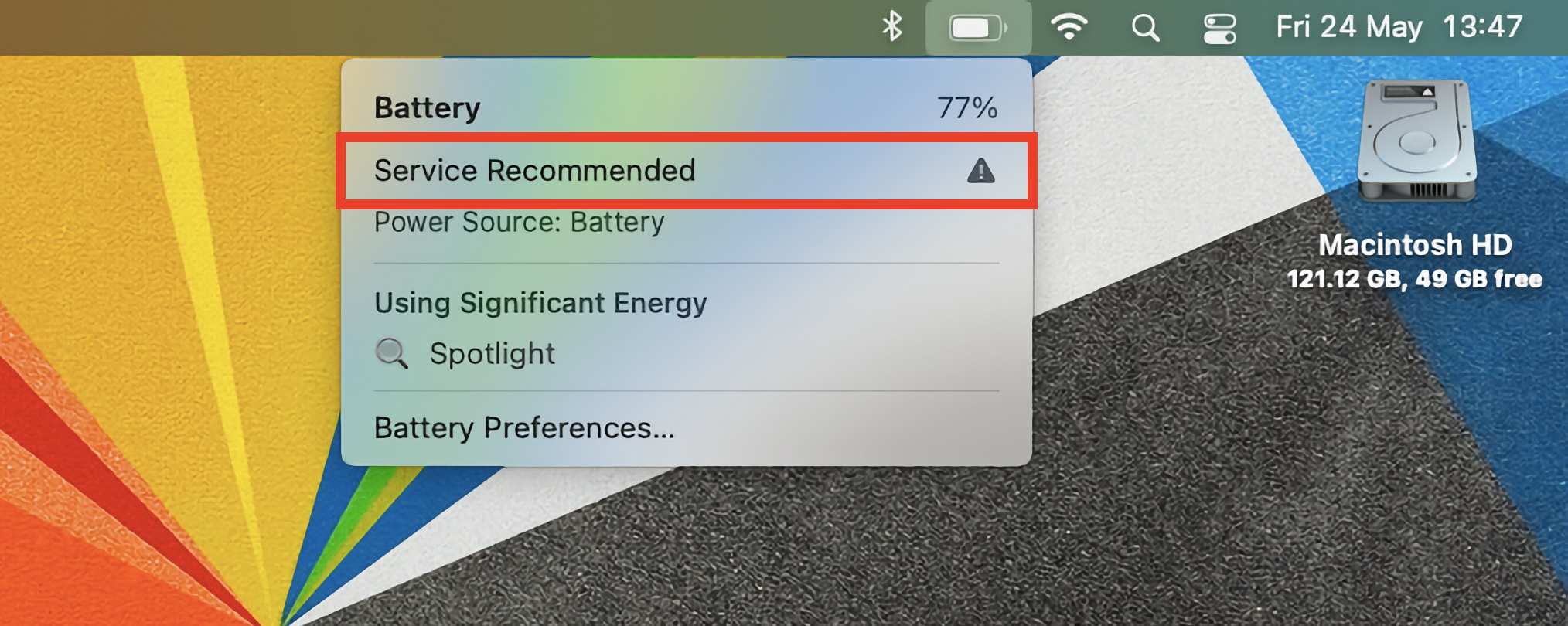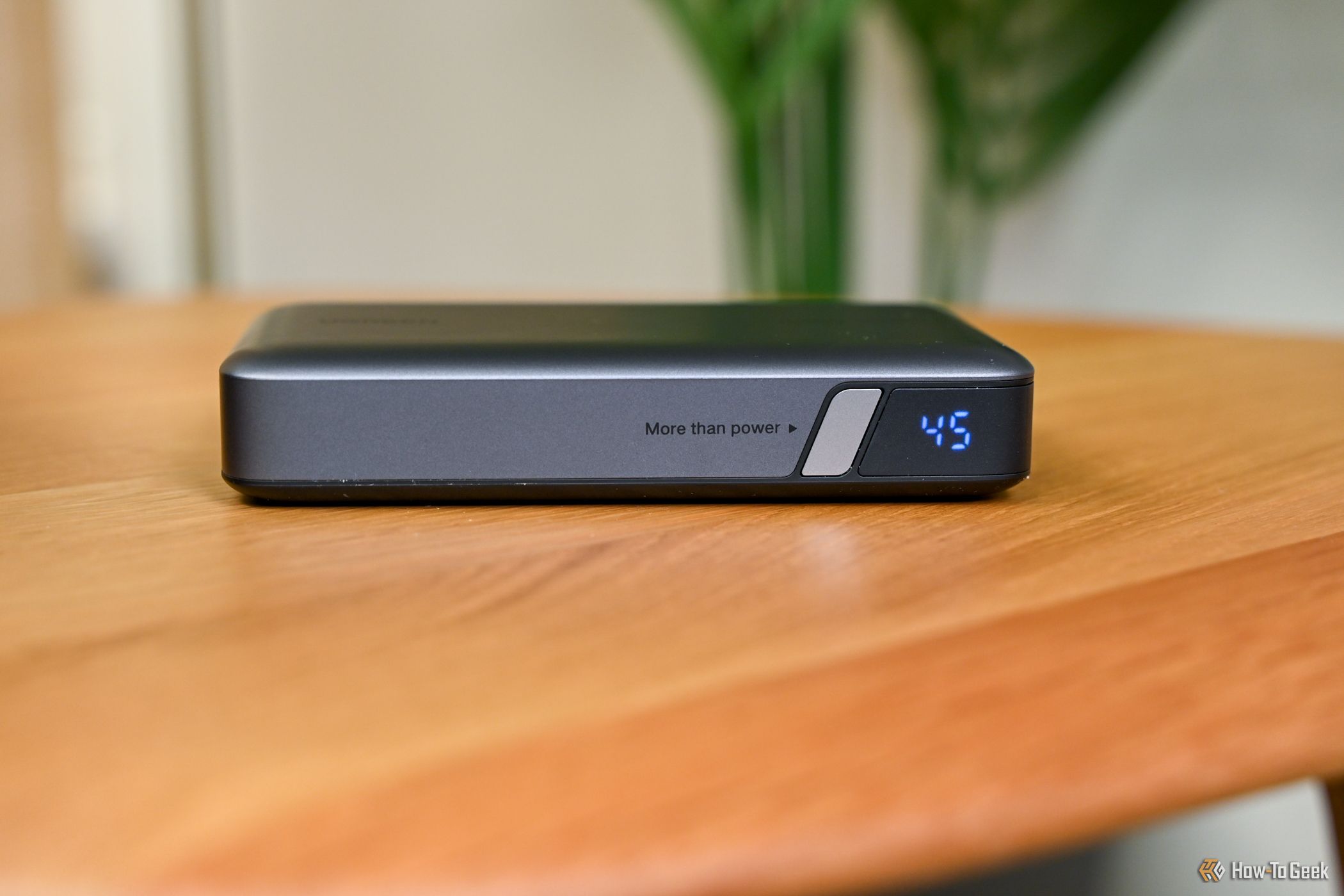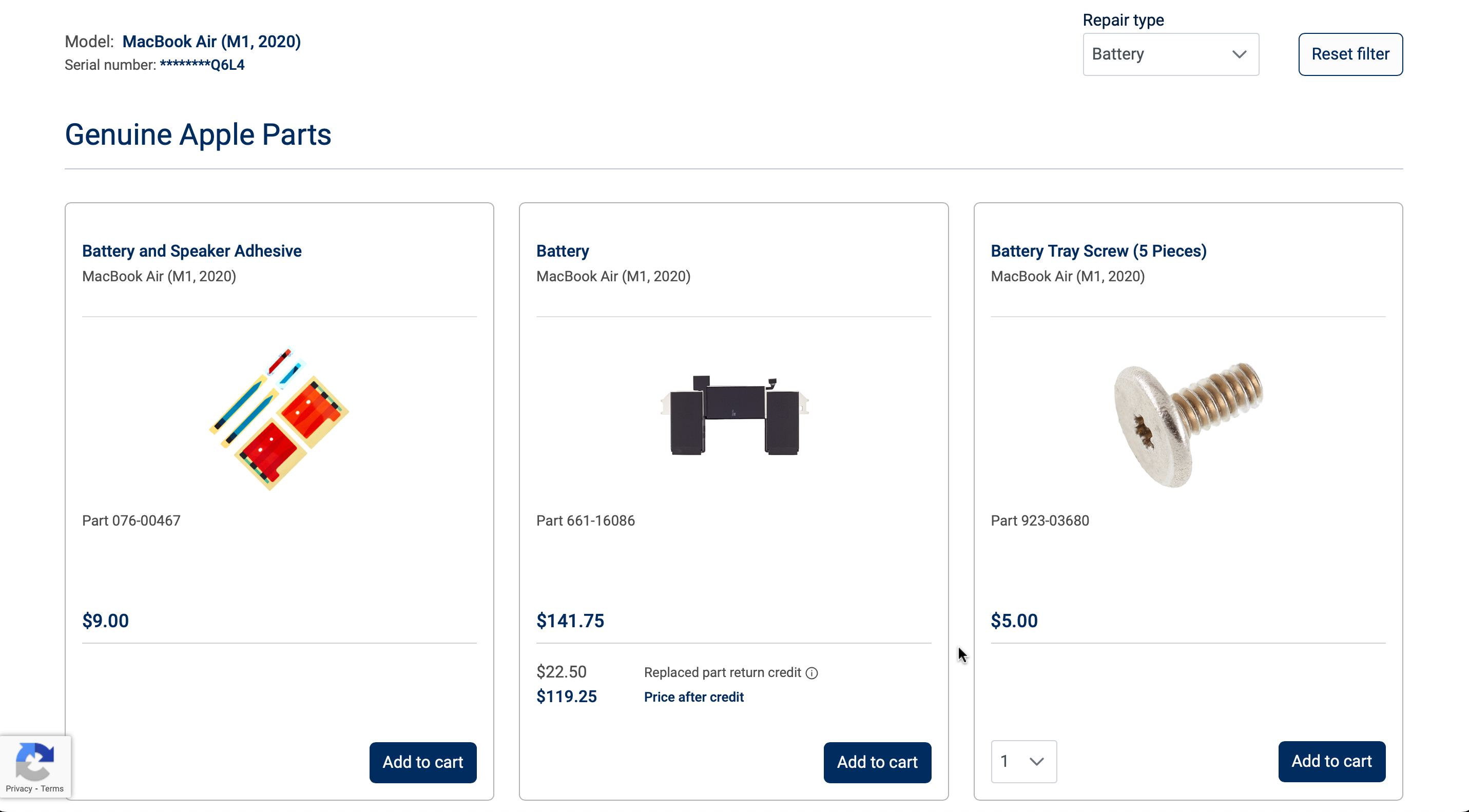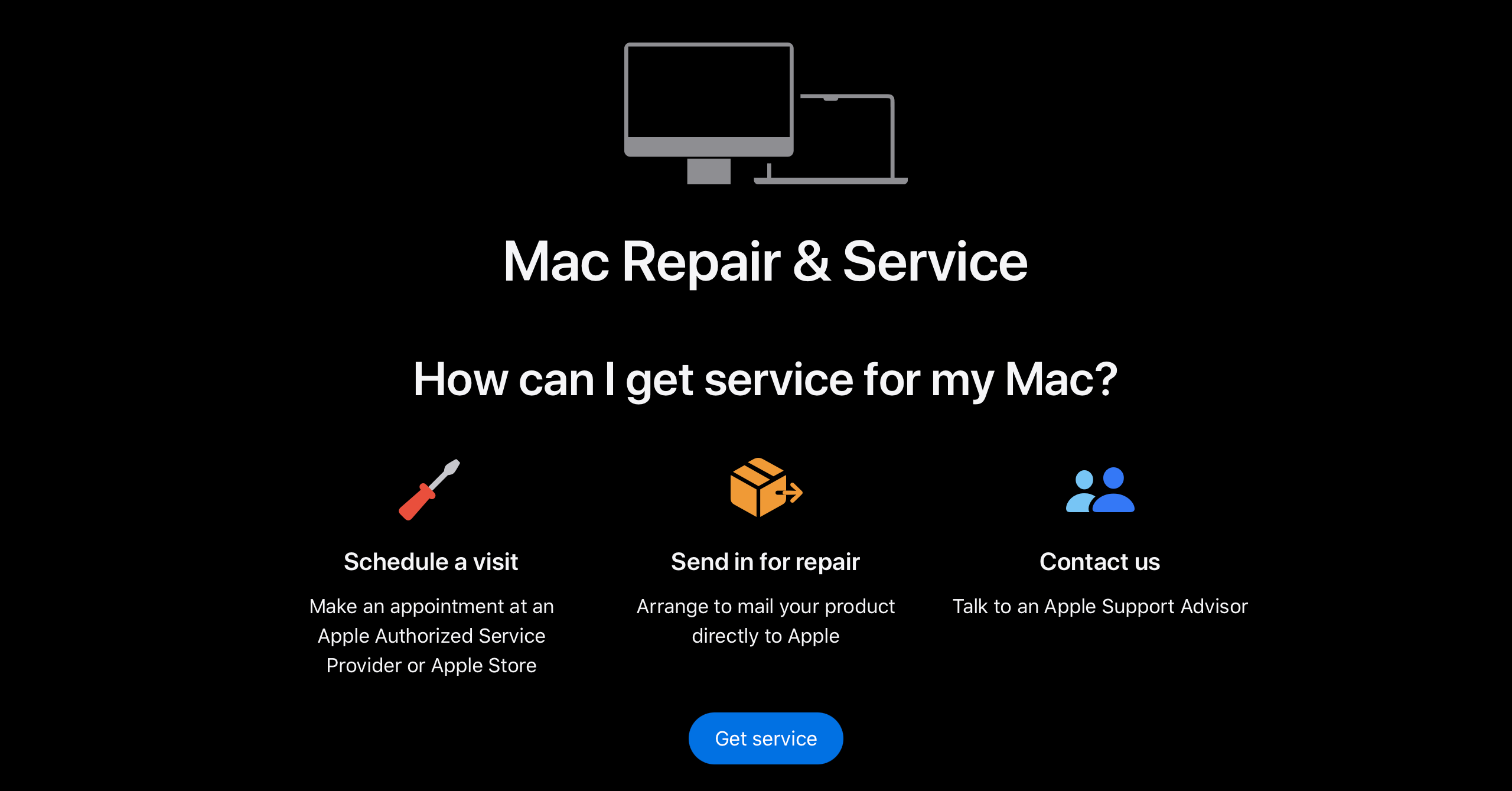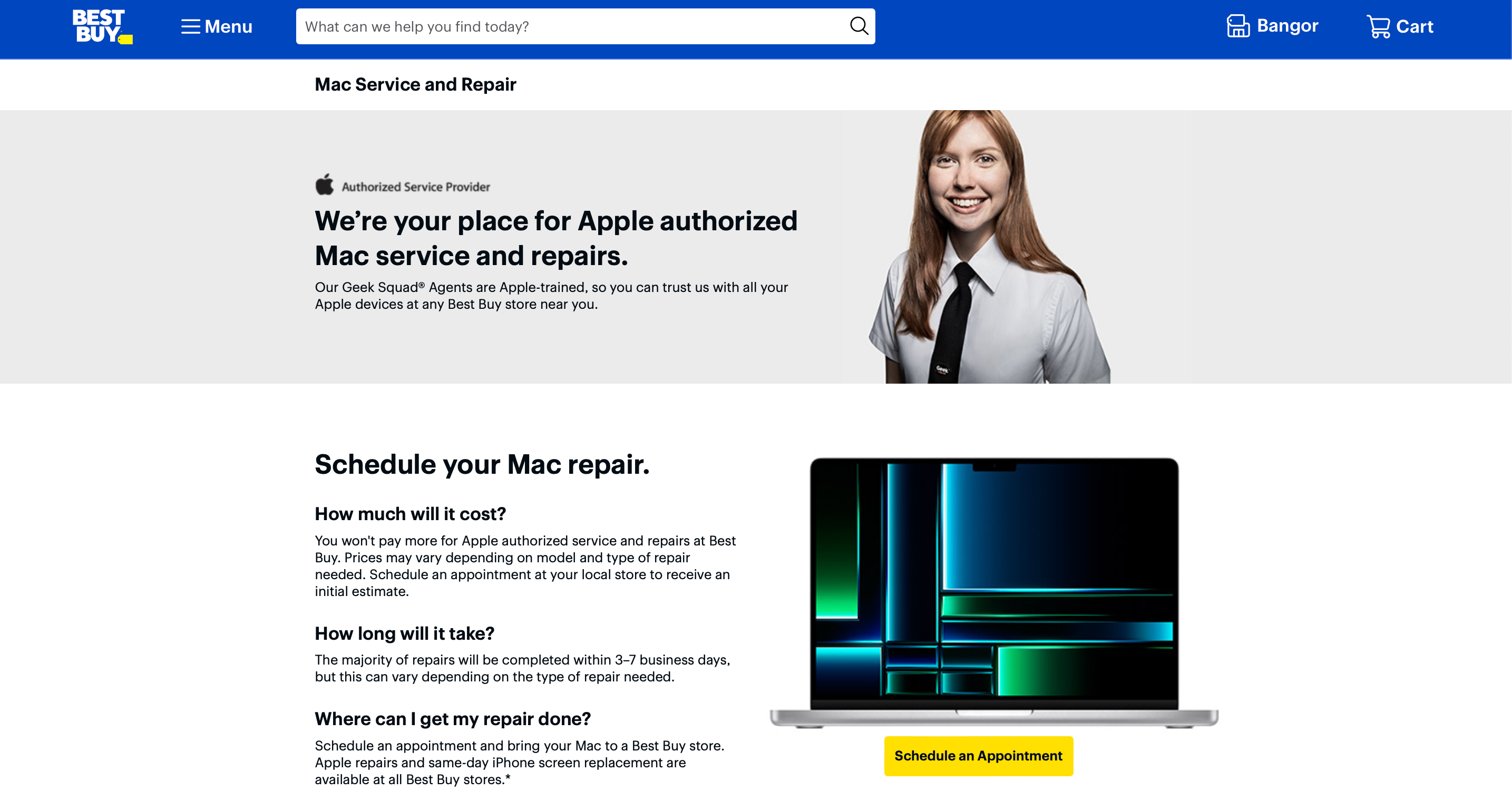Key Takeaways
- You don’t have to replace your battery as soon as the “Service Recommended” warning appears. How you use your Mac matters more.
- Apple will replace your battery for free under warranty, or if you have Apple Care+, when the capacity drops below 80%.
- Replacing the battery yourself is cheap but carries a risk; Apple’s own battery repair service is more affordable than you might expect.
MacBooks are pretty reliable, but the one part that is guaranteed to fail eventually is the battery. Fortunately, when it does happen, you’ve got several options and price points to deal with it. Here’s how much you can expect to spend.
Free: Do Nothing if You Rarely Use the Battery
First things first, when you see the “Service Recommended” warning in macOS, it doesn’t mean you have to change your battery immediately. It’s a sign that your battery’s capacity has dropped below 80%, and your battery life will be noticeably shorter than when your Mac was new. But you can continue using it without any problem, at least for a while.
To
check your MacBook’s battery level,
go to System Settings > Battery Settings. Click the “i” alongside Battery Health and you will see both the Battery Condition and the Maximum Capacity as a percentage. If that capacity is below 80%, that’s when you’ll start to see warnings about your battery health.
You’ll notice over time that the battery life will get shorter and shorter (and charging will also be quicker as the capacity is reduced). But if you only use battery power for one or two hours a day—or less—then you can continue using it well below the 80% threshold. Just keep it plugged in and you’ll be fine.
Free: With AppleCare and AppleCare+
Apple will replace your battery for free if its capacity drops below 80% in the first 12 months. This is unlikely to happen through general usage, so it would be a sign that the battery is defective.
You can also get your battery replaced for free if you bought the AppleCare+ extended warranty. Again, the battery capacity needs to drop below 80% while your coverage is active, which would typically mean within the first two or three years of use.
In some countries, including the US, UK, and Australia, you can sometimes extend your AppleCare+ plan coverage beyond three years. However, you have to pay for a year at a time, so it’s probably not worth doing this just for the battery alone. But if you need protection against accidental damage and other hardware failures, it could be worthwhile.
Check out mysupport.apple.com to see if you’re eligible.
$50+: Use an External Power Bank
If you need your MacBook to be portable and can’t always use it where you can plug it in, try the compromise solution of using an external power bank. This won’t be quite as mobile as an internal battery, but it does still give you the freedom to set up and work wherever you need to.
In our review of the Ugreen 20,000mAh Two-Way Fast Charging Power Bank, we found it to be fast and reliable when charging a MacBook Pro. Something like the Anker 24,000mAh Power Bank offers even greater capacity.
These are only short-term solutions, though. The power banks are compact but can be a little heavy, and they will tie up one of your ports as well. So, if you need your MacBook to be portable, at some stage you will have to replace the battery.
$75+: Replace the Battery Yourself
The cheapest way to replace your MacBook battery is by doing it yourself. There are a few companies that supply the parts and tools for this. Probably the most well-known is ifixit.com, which offers a battery and toolkit for the M1 MacBook Air for $130. OWC is another well-regarded brand, and you would pay $75 for a replacement battery and tools for the same MacBook.
Neither supplies official batteries. In both cases, the companies provide full instructions and videos that can guide you through the process.
You can also use Apple’s Self Service Repair, which does get you official parts. It’s more expensive, as you’d expect, and unlikely to be worth it unless you’ve already got the required tools, which you need to buy or rent as well. As of 2024, the M1 MacBook Air battery costs $141.75, plus more for any other parts you might need, like adhesive and screws. You can get a possible $22.50 credit if you return your depleted battery.
However, these machines are not intended for self-repair, so you do need to be quite brave to do it. It might be worth trying if you’re looking to resurrect an old Mac whose battery has long since expired. But on a MacBook that is still in good condition, I would personally feel more comfortable getting the job done properly.
$159+: Get it Repaired (Officially or Unofficially)
Apple will replace your battery for a reasonably affordable price. At the time of writing, it’s $159 for a MacBook Air and $249 for a MacBook Pro, and you can always check the latest prices on Apple’s support site. You get an official battery, of course, and a warranty.
You can also get your battery replaced using an Apple-certified repair service. These can include big companies like Best Buy in the US along with smaller local repair outlets. They will also get you an official Apple battery, but the labor costs can vary and might not always be cheaper. You’ll need to get a quote before you begin.
And if you want to save a little bit more money, you can use your local unofficial, non-certified repair service. This will get you a third-party battery that should be cheaper, and it should also cost less to install. Again, you’ll need to get a quote. Remember that there are no guarantees with these types of repairs. There’s even the chance it will affect Apple’s ability to repair anything that goes wrong in the future.
Unless you’re on the tightest of budgets, the official Mac repair seems like a good balance between value and peace of mind.
$759+: Buy a New MacBook
The last option for fixing a bad MacBook battery is to buy a new MacBook. This is overkill in most cases, but if you’re seeing other signs that it’s time to upgrade your MacBook, then it may be worth doing.
Although it isn’t a cheap option, you can save a few dollars by looking into a used or refurbished model. But depending on where you buy, you’ll get a used battery that’s already dropping towards 80% of its original capacity.
Some third-party stores allow you to replace the battery as part of the refurbishment process for an extra fee. This could be worth it depending on how much they’re charging as it will at least ensure you’re getting the full whack from your battery.
Alternatively, you could buy a refurb directly from Apple. Although there’s no guarantee that you’ll get a brand-new battery automatically, the company does replace any parts that need it. Apple refurbs cost a little more than you’d pay elsewhere, but you’ll get something that’s closer to new.
Your MacBook battery will start to fail eventually. But when it does, you’ve got a range of options to deal with it, at a range of prices. And remember that if your battery is draining too quickly, it’s not always a hardware problem. Sometimes, some software tweaks might fix it.
